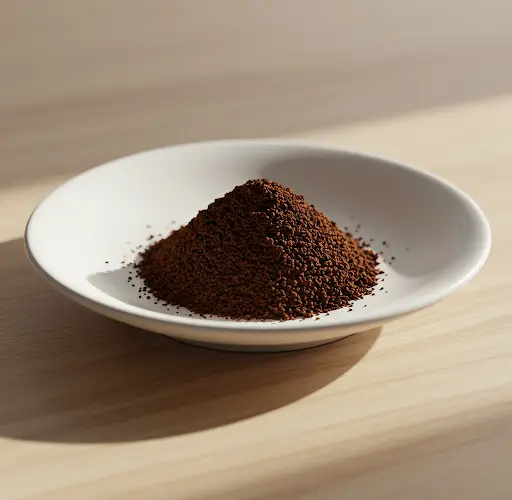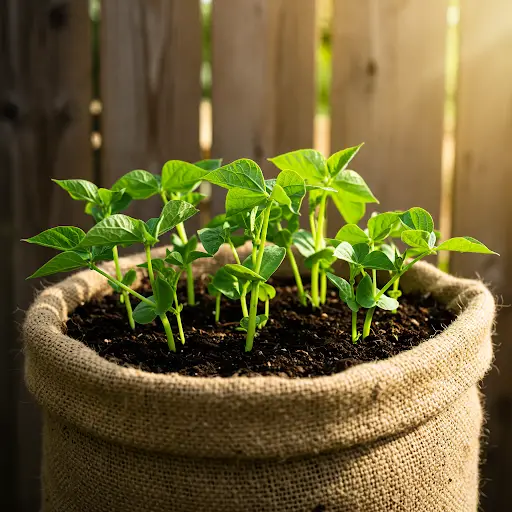Tomato plants are a staple in many gardens, offering a delicious and rewarding harvest when properly cared for. However, did you know that there’s a surprising, yet incredibly effective, ingredient that can significantly improve the health and yield of your tomato plants? It’s something you probably have sitting in your kitchen right now – ground coffee! This everyday kitchen item can work wonders for your garden, and in this article, we’ll explain exactly how to use it to boost your tomato plants’ growth, protect them from pests, and help you enjoy a bountiful harvest all summer long.
How Coffee Helps Tomato Plants
Ground coffee is often discarded after brewing, but this humble substance is a treasure trove of benefits for your garden. Let’s dive into the key ways in which coffee grounds can support your tomato plants.
1. Rich in Nitrogen
One of the most important elements for plant growth is nitrogen. It promotes the development of strong stems and vibrant leaves, both of which are critical for the early stages of tomato growth. Ground coffee is rich in nitrogen, making it an excellent addition to your garden’s soil. By adding coffee grounds to the soil, you provide a natural source of nitrogen that encourages robust plant growth. A healthy tomato plant will be more resilient, and its stems and leaves will have the energy they need to support fruit production.
2. Improves Soil Structure
Another significant benefit of coffee grounds is their ability to improve soil structure. Tomato plants thrive in well-aerated, loamy soil, and coffee grounds help achieve just that. When mixed into the soil, they help loosen compacted soil, allowing for better root penetration. This improved soil structure ensures that the roots have adequate space to grow and access essential nutrients. Additionally, coffee grounds help the soil retain moisture, which is particularly beneficial in hot weather when tomatoes need consistent watering.
3. Natural Pest Repellent
The natural acidity of coffee makes it a useful tool in repelling common pests that attack tomato plants. Pests like snails and slugs can cause significant damage to your tomatoes, but the acidity in coffee can deter them from making a meal of your plants. By using coffee grounds in and around your tomato plants, you create an environment that is less inviting to these pests, keeping your plants safe and healthy.
How to Use Coffee Grounds for Tomatoes
Now that you know the benefits of coffee for your tomato plants, let’s explore how to use it effectively in your garden. There are several methods you can try, each offering unique advantages.
1. Directly into the Soil
One of the simplest ways to use coffee grounds is by sprinkling them directly onto the soil around your tomato plants. This method allows the grounds to mix with the soil, providing nitrogen, improving the structure, and helping with moisture retention. Simply spread a thin layer of coffee grounds around the base of the plant and gently rake it into the top layer of soil. Be sure not to overdo it, as a small amount goes a long way.
2. Add to Compost
If you compost your garden waste, adding coffee grounds to your compost bin is an excellent way to enrich the humus. Coffee grounds are considered “green” compost material, providing nitrogen and other nutrients that help break down organic matter. This will result in nutrient-rich compost that can be used to feed your plants later on, including your tomatoes.
3. Coffee Watering Tea
Another effective method is to create a natural “coffee watering tea.” Steep used coffee grounds in water for about 24 hours, then use the liquid to water your tomato plants. This method allows the nutrients and beneficial properties of the coffee grounds to infuse into the water, which is then absorbed by the plants. It’s an easy way to give your tomato plants a boost without making a mess in the soil.
Additional Tips for Healthy Tomatoes
While ground coffee is a fantastic tool for enhancing the growth and health of your tomato plants, there are a few other practices you can implement to ensure your plants thrive:
-
Watering Consistently: Tomatoes need consistent watering, especially during hot weather. Be sure to water deeply and evenly, aiming for the base of the plant rather than wetting the foliage. This helps prevent diseases like blight.
-
Mulching: Apply a layer of mulch around the base of your tomato plants to help retain moisture, suppress weeds, and keep the soil temperature stable.
-
Pruning: Regularly prune your tomato plants to remove dead leaves and any side shoots. This encourages stronger growth and helps the plant focus its energy on producing fruit.
-
Avoid Over-fertilizing: While coffee grounds provide a natural source of nitrogen, be cautious not to over-fertilize your tomato plants, as too much nitrogen can lead to excessive leafy growth at the expense of fruit production.
Why This Trick Works
Tomato plants are heavy feeders, meaning they need a lot of nutrients to produce high-quality fruit. Nitrogen, in particular, is essential for healthy leaf growth, which supports the plant’s ability to photosynthesize and produce energy. Coffee grounds provide a sustainable and cost-effective way to deliver nitrogen to your plants. They also help improve the soil structure, making it easier for roots to access nutrients and water.
Additionally, the pest-repelling properties of coffee can prevent the damage caused by common tomato pests. When combined with the other benefits, such as improved moisture retention and soil aeration, coffee grounds become an invaluable tool in your gardening arsenal.
Final Thoughts
Ground coffee is a simple yet powerful tool that can significantly improve the health of your tomato plants. By adding coffee grounds to your garden, you provide essential nutrients, protect your plants from pests, and improve soil structure. Whether you sprinkle it directly into the soil, add it to your compost, or create a natural coffee watering tea, coffee is an affordable and effective way to enhance your garden and maximize your tomato harvest.
Give it a try and see the results for yourself—your tomato plants will thank you!



